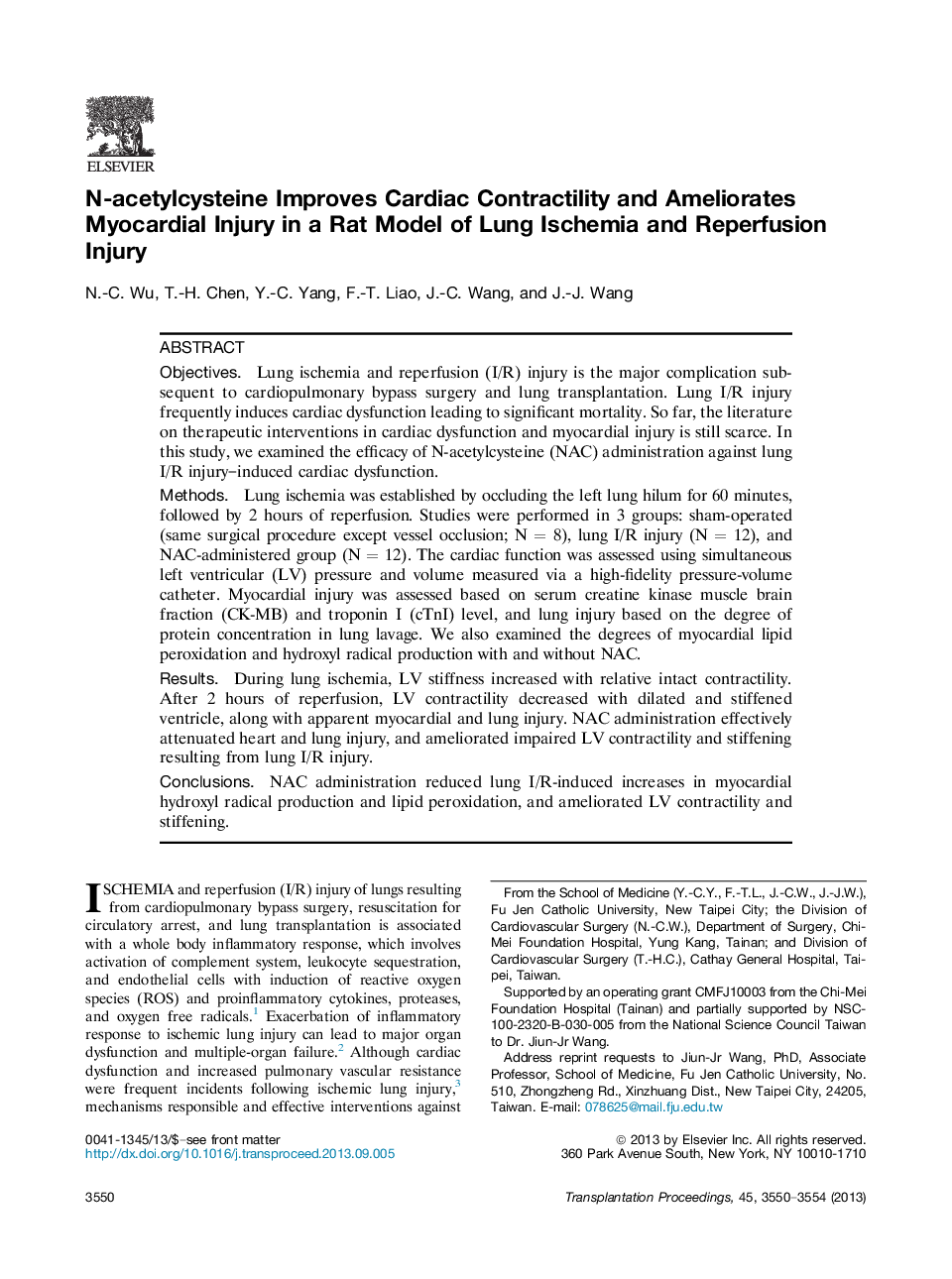| Article ID | Journal | Published Year | Pages | File Type |
|---|---|---|---|---|
| 4256523 | Transplantation Proceedings | 2013 | 5 Pages |
ObjectivesLung ischemia and reperfusion (I/R) injury is the major complication subsequent to cardiopulmonary bypass surgery and lung transplantation. Lung I/R injury frequently induces cardiac dysfunction leading to significant mortality. So far, the literature on therapeutic interventions in cardiac dysfunction and myocardial injury is still scarce. In this study, we examined the efficacy of N-acetylcysteine (NAC) administration against lung I/R injury–induced cardiac dysfunction.MethodsLung ischemia was established by occluding the left lung hilum for 60 minutes, followed by 2 hours of reperfusion. Studies were performed in 3 groups: sham-operated (same surgical procedure except vessel occlusion; N = 8), lung I/R injury (N = 12), and NAC-administered group (N = 12). The cardiac function was assessed using simultaneous left ventricular (LV) pressure and volume measured via a high-fidelity pressure-volume catheter. Myocardial injury was assessed based on serum creatine kinase muscle brain fraction (CK-MB) and troponin I (cTnI) level, and lung injury based on the degree of protein concentration in lung lavage. We also examined the degrees of myocardial lipid peroxidation and hydroxyl radical production with and without NAC.ResultsDuring lung ischemia, LV stiffness increased with relative intact contractility. After 2 hours of reperfusion, LV contractility decreased with dilated and stiffened ventricle, along with apparent myocardial and lung injury. NAC administration effectively attenuated heart and lung injury, and ameliorated impaired LV contractility and stiffening resulting from lung I/R injury.ConclusionsNAC administration reduced lung I/R-induced increases in myocardial hydroxyl radical production and lipid peroxidation, and ameliorated LV contractility and stiffening.
